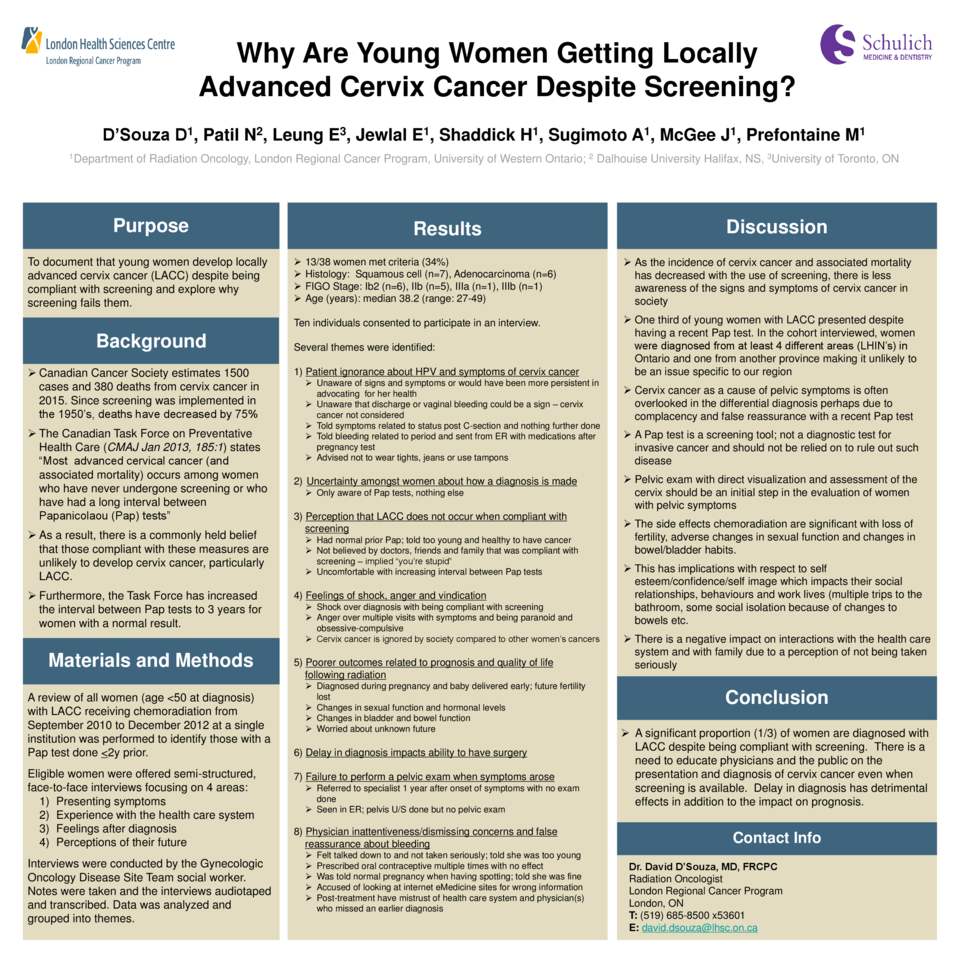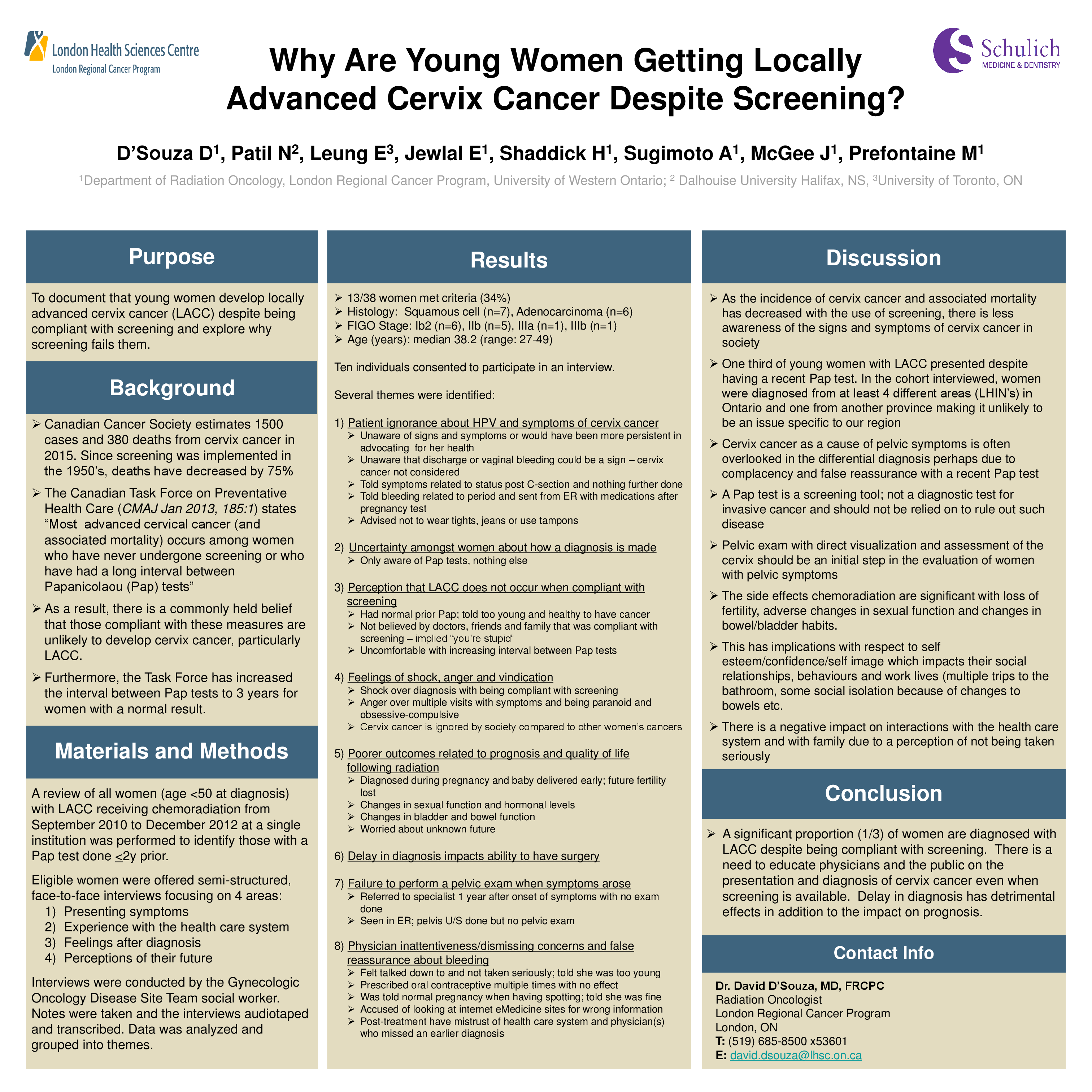Abstract
Aims
To document that women develop locally advanced cervix cancer (LACC) despite being compliant with screening and to explore why screening fails these women
Method
Women (age< 50) with LACC receiving chemoradiation (Sept/10 – Dec/12) were identified. A chart review identified those with a Pap test ≤ 2 years prior. Eligible women were offered semi-structured, face-to-face interviews focusing on 4 areas: 1) presenting symptoms, 2) experience with the health care system, 3) feelings after diagnosis and 4) perceptions of their future. Interviews were audiotaped and transcribed; key words were identified and grouped into themes.
Results
13/38 women met the study criteria with a median age of 38.2 (27-49). All had a normal Pap except one (11 months prior). Ten consented to participate in an interview.
Several themes were identified:
1) physician inattentiveness/dismissing concerns and false reassurance that bleeding is normal;
2) physician negligence to perform pelvic examination when symptoms arose
3) patient ignorance about HPV and the symptoms of cervix cancer;
4) uncertainty amongst women about how a diagnosis should be made;
5) perception that LACC does not occur in women compliant with screening;
6) subjects felt the delay in diagnosis adversely impacted their ability to have surgery, while worsening both prognosis and quality of life following radiation
7) feelings around diagnosis included shock, anger and vindication.
Conclusion
In a population where screening is available, there is still a need to educate physicians and the public on the presentation and diagnosis of cervix cancer. Delay in diagnosis of LACC has detrimental effects beyond impact on prognosis.






